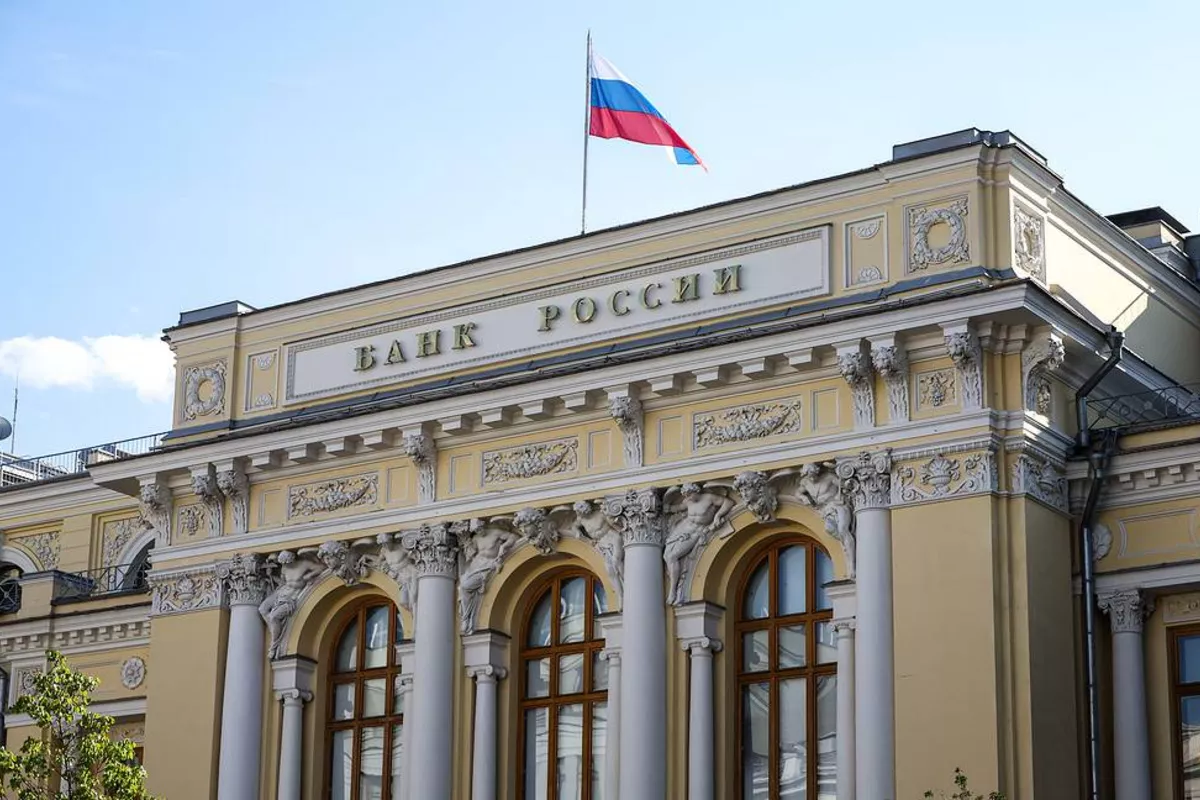
Photo: TASS
The Bank of Russia has reduced its key interest rate by 100 basis points, bringing it down to 20% after keeping it at 21% annually for an extended period.
Despite the rate cut, the central bank stressed the importance of maintaining a prolonged period of tight monetary policy, according to a press release issued by the regulator, The Caspian Post reports, citing TASS.
"On June 6, 2025, the Bank of Russia Board of Directors decided to cut the key rate by 100 basis points to 20.00% per annum. Current inflationary pressures, including underlying ones, continue to decline. While domestic demand growth is still outstripping the capabilities to expand the supply of goods and services, the Russian economy is gradually returning to a balanced growth path. The Bank of Russia will maintain monetary conditions as tight as necessary to return inflation to the target in 2026. This means that monetary policy will remain tight for a long period. Further decisions on the key rate will be made depending on the speed and sustainability of the decline in inflation and inflation expectations," the regulator stated.
The regulator noted that in April 2025, the current seasonally adjusted price growth slowed to 6.2% on an annualized basis after averaging 8.2% in the Q1 of 2025. "The similar indicator of core inflation was 4.4% after the average of 8.9% in the previous quarter. Concurrently, most indicators of underlying inflation were in the range of 5.5-7.5% in annualized terms. High-frequency data in May showed a further decline in the current price growth, although with a significant contribution from volatile components. As of 2 June 2025, annual inflation slowed to 9.8%," the statement said.
The regulator also noted that it will maintain a degree of monetary policy tightness necessary to bring inflation back to target by 2026. This implies a prolonged period of tight monetary policy.
At the same time, the Bank of Russia added that further decisions regarding the key interest rate will depend on the pace and sustainability of the decline in inflation and inflation expectations.
According to the Bank of Russia, the impact of tight monetary conditions on demand is becoming increasingly evident in the ongoing decline in inflationary pressures. "However, price dynamics are uneven by component. Tight monetary policy has a particularly strong effect on the decrease in prices for non-food goods, including through the ruble appreciation. As for food products and services, inflationary pressures remain high," the statement said.
According to the Bank of Russia, inflation expectations have shown mixed dynamics since April, while businesses’ price expectations have continued to decline. "Businesses’ price expectations have continued to decline. Expectations of financial market participants have not changed significantly. Households’ inflation expectations have increased slightly. In general, inflation expectations remain elevated. This may impede a more sustainable slowdown in inflation," the regulator said.
At the same time, the regulator noted that the upward deviation of the Russian economy from the trajectory of balanced growth is narrowing. Real-time data, including for the Q2 of 2025, indicate a gradual slowdown in the growth of domestic demand.
The Bank also pointed out that conditions in the labor market have remained largely unchanged since the April meeting. Unemployment remains at historic lows. However, survey data show that the share of enterprises experiencing labor shortages continues to decline. Wage growth remains elevated and continues to outpace productivity gains.
"Proinflationary risks decreased slightly but still prevail over disinflationary ones in the medium term. The key proinflationary risks are associated with a longer upward deviation of the Russian economy from a balanced growth path and high inflation expectations, as well as with the deterioration in the terms of external trade," the regulator added.
The Bank of Russia Board of Directors will hold its next key rate meeting on 25 July.
Share on social media